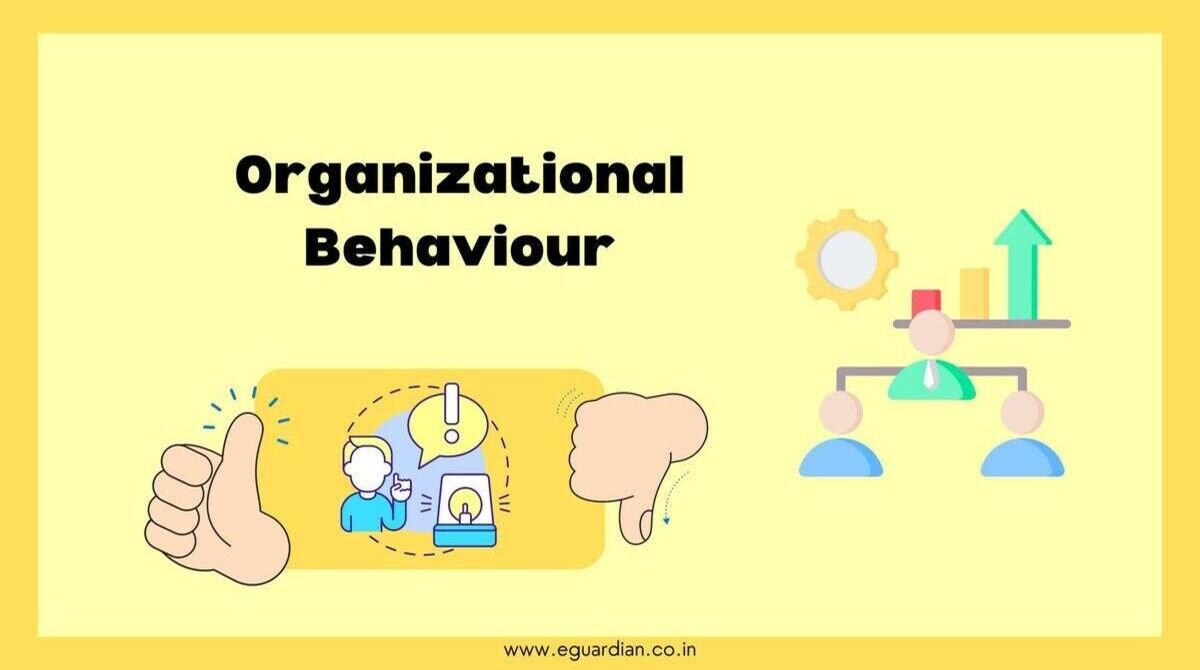Operations Research Objective Questions and Answers. Operations research MCQ with answers for the preparation competitive & academic exams.
Are you searching for Operations Research Objective Questions and Answers? If so, you have come to the right place. Here we provide a comprehensive list of questions and answers related to operations research that cover a wide range of topics.
This article aims to provide an overview of the field and help students understand the fundamentals of operations research quickly and easily. It is written with a focus on practical application as well as theoretical understanding.

Operations Research MCQs with answers
1. KAP stands for –
a. Knowledge awareness practice
b. Knowledge authority process
c. Knowledge awareness process
d. None of the following
Answer: (a)
2. It is defined as a systematic viewing of specific phenomena in their proper setting for the specific purpose of gathering data for a particular study
a. Observation
b. Research
c. Analysis
d. Scientific method
Answer: (a)
3. The ___ is a part of the phenomenon or group which is observed and he acts as both an observer and a participant.
a. Researcher
b. Observe
c. Analyses
d. None of the above
Answer: (b)
4. A ___ is the arrangement of conditions for the collection and analysis of data in a manner that aims to combine relevance to the research purpose with economy in procedure.
a. Research design
b. Research study
c. Research model
d. Both a & c
Answer: (d)
5. Research is a ___ and ___ study of an issue.
a. Systematic and logical
b. Arbitrary and scientific
c. Verifiable and accurate
d. Rational and precise
Answer: (a)
6. Who said- “Research is a systematic controlled, empirical and critical investigation of hypothetical propositions about the presumed relations among natural phenomena.”
a. Young
b. Kerlinger
c. Porter
d. None of the above
Answer: (b)
7. Scientific Method implies-
a. Systematic step-by-step procedure following the logical processes of reasoning.
b. Means for gaining knowledge of the universe
c. It doesn’t refer to a specific subject of matter
d. All of the above
Answer: (d)
8. Research simply stands for:
a. Search for facts
b. Answers to questions
c. Solutions to problems
d. All of the above
Answer: (d)
9. Research is for-
a. To find explanations to unexplained phenomenon
b. To clarify the doubtful facts
c. To correct the misconceived facts
d. All of the above
Answer: (d)
10. Good research design reduces the was the tag of ___ and ___
a. Time, cost
b. All resources
c. Manpower, time
d. Time, data
Answer: (a)
11. Stratification process involves three major decisions, stratification bases, ___ and ___
a. Number, sizes
b. State sample sizes number of strata
c. Both a & b
d. All of the above
Answer: (b)
12. It is a two-way systematic conversation between an investigator and an informant, initiated for obtaining information relevant to a specific study.
a. Research
b. Interview
c. Interviewing
d. Observation
Answer: (c)
13. When a sufficient number of qualified interviewers are available, ___ is feasible
a. Personal interview
b. Individual interview
c. Group interview
d. None of the above
Answer: (a)
14. This type of interview is used for large-scale formalized surveys.
a. None-directed interview
b. Focused interview
c. Structured interview
d. Depth interview
Answer: (c)
15. This interviewing is more useful in case studies rather than surveys.
a. Unstructured
b. Non-directive interview
c. Both a and b
d. Focused interview
Answer: (c)
16. The ___ interview permits the interviewer to obtain details of personal reactions, specific emotions, and the like.
a. Focused
b. Clinical
c. Depth
d. Structured
Answer: (a)
17. Social casework, prison administration, psychiatric clinics, etc. are the most common types of ___ interview.
a. Focused
b. Clinical
c. Depth
d. Structured
Answer: (b)
18. This requires much more training on interpersonal skills.
a. Depth interview
b. Structured interview
c. Clinical interview
d. Focused interview
Answer: (a)
19. Information furnished by the respondent in the interview is recorded by the:
a. Interviewer
b. Investigator
c. Observer
d. Researcher
Answer: (b)
20. Interview is an ___ process
a. Interactive
b. Interaction
c. Dealing
d. Communicating
Answer: (b)
21. The investigator should plan the ___ for dealing with various situations of respondents.
a. Methods
b. Procedure
c. Strategies
d. Cases
Answer: (c)
22. Before starting the research interview, the interviewer should establish a ___ also called a friendly relationship with the respondent.
a. Report
b. Relationship
c. Image
d. Goodwill
Answer: (a)
23. ___ distinguishes five principal symptoms of inadequate response.
a. Blummar
b. Kahn and Cannel
c. Taylor
d. Doan John
Answer: (b)
24. ___ reduces the effective sample size and its representativeness.
a. Inaccessibility
b. Refusal
c. Non-responses
d. All of the above
Answer: (c)
25. A ___ is defined as a method of collecting primary data in which a number of individuals with a common interest interact with each other.
a. Group interview
b. Group discussion
c. Both a and b
d. None
Answer: (a)
26. A part of the population is known as ___.
a. Sampling
b. Sample
c. Model
d. All of the above
Answer: (b)
27. Sampling has opted when the amount of money budgeted is ___ then the anticipated cost of census survey.
a. Smaller
b. Larger
c. Equal to
d. None
Answer: (a)
28. ___ is the primary reason for using sampling by academic and marketing researchers.
a. Staff
b. Access to computer facilities
c. Time limit
d. Population element
Answer: (c)
29. ___ only allows measurability kind of computation, where the research objective requires statistical inference.
a. Probability samples
b. Geographical area
c. Size and nature of the population
d. Time limit
Answer: (a)
30. ___ plays an important role in the selection of a topic for research.
a. Moral values
b. Ethical values
c. Personal values
d. All
Answer: (c)
31. ___ shapes the preference of investigators in a subtle and imperceptible way.
a. Family conditions
b. National conditions
c. Economic conditions
d. Social conditions
Answer: (d)
32. A ___ is some difficulty experienced by the researcher in a theoretical or practical situation
a. Problem
b. Desire
c. Situation
d. Research
Answer: (a)
33. Solving the difficulty is the task of ___
a. Problem-solving
b. Research
c. Selection of alternatives
d. None of the above
Answer: (b)
34. ___ is the factual observations that other observers can see and check.
a. Accuracy
b. Verifiable evidence
c. Precision
d. Objectivity
Answer: (b)
35. The selection of a problem is the ___ in research.
a. First step
b. Last step
c. subject matter
d. All of the above
Answer: (a)
36. ___ an imaginative insight plays an important role in choosing the problem
a. Opinion
b. Vision
c. Guidance
d. All of the above
Answer: (b)
37. A research design is the program that guides the investigator in the process of ___ observations.
a. Collecting
b. Analyzing
c. Interpreting
d. All of the above
Answer: (d)
38. Sampling helps in ___ and ___ saving
a. Accuracy, precision
b. Size, profit
c. Time, cost
d. None of the above
Answer: (c)
39. For a good research design, ___ the effect of extraneous variables
a. Maximize
b. Minimize
c. Reduce
d. Raised
Answer: (b)
40. The term ___ is used in experimental research to reflect the restrain in experimental conditions.
a. Variable
b. Experiment
c. Control
d. Hypothesis
Answer: (c)
41. A research design is a ___ and ___ prepared for directing a research study.
a. Logical & systematic plan
b. Conceived & analysis
c. Innovative, constructive
d. None of the above
Answer: (a)
42. Research design constitutes the blueprint for the collection, ___, and ___ of data
a. Analyzing, interpreting
b. Measurement, analysis
c. Measurement, techniques
d. None of the above
Answer: (b)
43. The qualitative phenomena may also b quantified in terms of the ___ or ___ of the attribute considered.
a. Positive or negative
b. Presence or absence
c. Stable or continuous
d. None of the above
Answer: (b)
44. ___ is a group exposed to usual conditions in experimental hypothesis-testing research, whereas ___ is the group that is exposed to a new or special conditions.
a. Control group, the experimental group
b. Control unit, experiment unit
c. Both a & b
d. None of the above
Answer: (c)
45. Research extends knowledge of human beings, ___, and ___.
a. Social life, environment
b. Social life, professional life
c. Internal and external environment
d. None of the above
Answer: (a)
46. Two main approaches to research are
a. Qualitative and quantitative
b. Subjective and objective
c. Reliable and verifiable
d. All of the above
Answer: (a)
47. “Katz” conceptualizes two levels of exploratory studies:
First Level – Discovery of significant variable in the situation
Second Level – Discovery of relationships between variables
a. True
b. False
c. Can’t say
d. Non
Answer: (a)
48. Pure research is also known as ___ and exploratory research is a child as ___.
a. Basic research and fact-finding method
b. Basic or fundamental research and formulating research
c. Problem-oriented and action-directed
d. All of the above
Answer: (b)
49. Researchable problems require evaluation of alternatives against ___ and ___ Criteria
a. Internal and external
b. Interest and competence
c. Feasibility and facility
d. None of the above
Answer: (a)
50. ___ is the degree to which bias is absent, whereas ___ is measured by the standard error.
a. Precision, size
b. Accuracy size
c. Probability, precision
d. Size, accuracy
Answer: (b)
Conclusion
Operations Research is a fascinating and complex field of study that requires a great deal of expertise and knowledge. We hope this article has provided you with a better understanding of the subject, as well as some helpful practice questions and answers.
With the right guidance and dedication, operations research can be an incredibly rewarding pursuit. As you continue to learn more about operations research, don’t forget to apply what you’ve learned in practice!
Thanks for reading our blog, if you like the post on Operations Research Objective Questions and Answers, please share on social media.
Read More:



